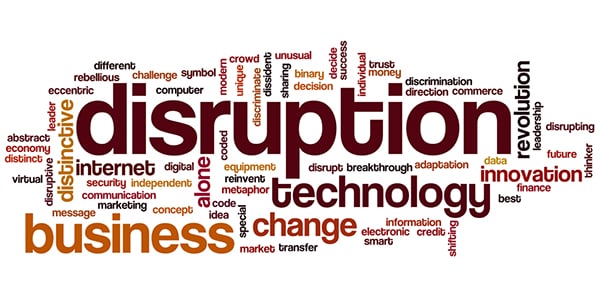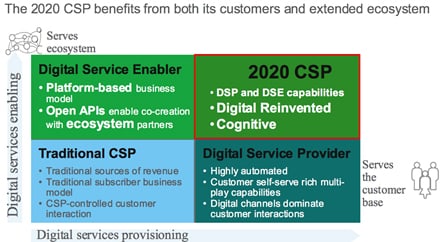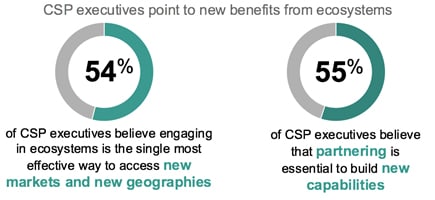
What makes the world’s top executives cringe? From our latest C-suite survey covering responses from 5,247 business leaders from 21 industries it is clear that it is the “Uber syndrome.” They expressed their fear that a competitor with a completely different business model enters their industry and flattens them.
Seventy-six percent of communications service provider (CSP) executives expect more competition to come from outside their industry in the coming years. In fact, competition from outside has already been a threat for traditional CSPs for many years, with digital disrupters as Skype, WhatsApp and WeChat destroying the so profitable revenue streams from voice and messaging. These trailblazing companies have reset the expectations for customer experience and many CSPs have yet to transform their business models to respond to these new expectations.
In an environment that is in a severe state of flux, the ultimate winners may be either the new entrants that move and scale the fastest or traditional CSPs that are willing to adapt and change. Successful CSPs will need to deliver superior customer experiences, disrupt their own business models and implement the cognitive and personalized paradigm to secure their footholds in a changing strategic landscape and an altering industry hegemony.
Making this Digital ReinventionTM a reality requires simultaneous progress along two trajectories (see Outthinking disruption in communications). The successful CSP will emerge as providers along two digital service axes: The digital services provider (DSP) and the digital services enabler (DSE).

As a DSP, the CSP delivers high-quality customer experiences through online channels. It values data and analytics – and will embrace cognitive capabilities to further improve the customer experience and its operations. To become a DSP, today’s provider must overcome challenges. Siloed processes and divisions are the biggest obstacles in implementing customer experience initiatives for most CSPs, but also not understanding what makes good customer experiences and the lack of the right digital skills are clear hurdles.
Along the other axis, the DSE recognizes the growing importance of ecosystems and the associated market opportunities. Though the key focus of many CSPs still is on connectivity services and selling products, we see an increasing interest in playing a role in ecosystems. In the digital world, what eventually differentiates winners from losers is often not the best product – but the right business model. And the most powerful business models are based around ecosystems.
In this year’s ecosystem study, 54% of CSP executives told us engaging in ecosystems is the most effective way to access new markets and geographies. Fifty-five percent believe that partnering in ecosystems is essential for them to build new capabilities. And though there are different ways that organizations can engage in ecosystems, 57% of CSP executives want the role of platform provider by creating integrated environments that support and enable ecosystems to operate.

New, compelling customer experiences delivered through ecosystems are at the core of Digital Reinvention. Indeed, 54% of CSP executives we surveyed reported that the experiences customers now demand can only be delivered through business ecosystems. Digital Reinvention combined with digital intelligence enables radical new ways of interaction with customers and reveals powerful insights that transform businesses. Together, Digital Reinvention and digital intelligence create a Cognitive Enterprise
Digital Reinvention reflects a fundamental rethinking of the organization, reimagining structure, operations and governance from a customer-centric perspective. It is not not an easy journey and probably the hardest thing for CSPs to do. But in today’s evolving landscape, Digital Reinvention and becoming a cognitive company is no longer a choice: It’s a survival skill.
I look forward to exploring more on this in the Forum debate on The transformation of telecom operators: reinventing telcos at ITU Telecom World 2017 in Busan, South Korea, later this month.
